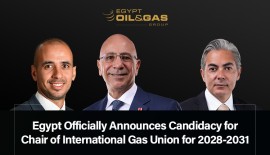One of the most complicated decades-long world conflicts was revived when fights erupted again between Armenia and Azerbaijan over the mountainous enclave late in September. Hopes of ending the bloodshed in Nagorno-Karabakh looked slim last month as several brokered ceasefires failed to halt the worst fighting in the South Caucasus since the 1990s. The new wave of fighting is not only threatening to spiral into regional war, but also threatening an important energy corridor.
Although skirmishes have been common along the front lines of Nagorno-Karabakh, which is internationally recognized as a part of Azerbaijan but is home to ethnic Armenians, the recent violence wave shows signs that the local ethnic dispute could threaten to destabilize the South Caucasus region and disrupt oil and gas exports from Azerbaijan, a significant oil and gas exporter to Central Asia and Europe.
The conflict is becoming more complicated with Russia promising to defend Armenia, while Turkey pledging support to Azerbaijan. The complicated situation also left Iran, which has a large Azeri minority and good relations with Armenia, torn between supporting the fellow Shiite brothers in Azerbaijan or the important strategic and trade partners in Armenia.
Deep Rooted Conflict
The Caucasus, a strategically important mountainous region in south-east Europe, has been a venue for conflict between different powers that vied to control it over centuries. However, the Nagorno-Karabakh dispute in particular can be traced to the early 1920s when Armenia and Azerbaijan both became part of the Soviet Union. Nagorno-Karabakh was an ethnic-majority Armenian region, but the Soviets gave control over the area to Azerbaijan authorities.
For decades, the Armenians in Nagorno-Karabakh called to be transferred to Armenian authority control. But it was only when the Soviet Union began to collapse in the late 1980s that Nagorno-Karabakh’s regional parliament officially voted to become part of Armenia to begin a military confrontation between the two former Soviet states.
Armenians eventually were able to gain control of Nagorno-Karabakh before a Russian-brokered ceasefire was declared in 1994. Since then, Nagorno-Karabakh remained part of Azerbaijan but has mostly been governed by separatists who declared a republic, run by ethnic Armenians and backed by the Armenian government. However, the declared republic was never recognized by any country in the world.
Clashes have continued throughout the past three decades, with one serious flare in 2016, when dozens of troops on both sides were killed. About 30,000 people were reportedly killed in a 1991-94 war, which resulted in the displacement of 750,000 Azerbaijanis and 353,000 Armenians.
Peace talks have taken place since then, mediated by the Organization for Security and Co-operation in Europe (OSCE) Minsk Group – a body set up in 1992 and chaired by France, Russia and the US.
The two countries traded accusations about who began the last bout of fighting that killed hundreds of people, including civilians, and strained ties between Turkey, a close ally of Azerbaijan and Russia, which has a defense pact with Armenia.
In spite of three ceasefire agreements signed in recent weeks, fighting has continued apace and even getting more brutal as the recent offensive marked by the deployment of drones, sensors, long-range heavy artillery and missile strikes.
According to Amnesty International, Armenian, Armenian-backed and Azerbaijani forces have all been guilty of using banned weapons including Cluster munitions that have endangered the lives of civilians caught in the middle.
Despite the international calls for calm, the prospects for a broader peace deal appear dim. A ceasefire brokered in Moscow on October 10 failed to hold, while a truce mediated by France a week later also broke down, whereas a US-brokered truce met the same destiny with each side blaming the other for violations.
Assertive Turkey
According to analysts, the recent episode of the conflict is very different and more serious mainly due to the involvement of Turkey, which offered more direct support to Azerbaijan and elevated the scale of the fighting.
Turkey, which owns the North Atlantic Treaty Organization’s (Nato) second-largest army after the US, supplies weapons and training to Azerbaijan, and there are signs that it is actively engaged in the fighting and sending Syrian mercenaries, which Ankara has denied. If Turkish involvement is confirmed, even in a supporting role, it would be just one of several fronts where it has recently deployed troops, ships, and aircraft with increasing readiness. Analysts see the Turkish role as another example that could rapidly project military forces with recent interventions in Iraq, Syria and Libya in mind.
Turkey and Azerbaijan are bound by strong ethnic, cultural and historic bonds and refer to their relationship as being one between the sons of one nation.
Over the last three decades, the two countries have forged robust economic ties. Turkey is the main channel for Azerbaijan’s oil and gas exports, while the ex-Soviet republic has become a major investor in Turkey.
However, many commentators see Turkish involvement in the Armenian-Azeri conflict as part of Turkey’s aspirations for global and regional leadership.
The Turkish involvement is even heating up the conflict as Armenians view the current attack as an attempt to continue the Armenian genocide of 1915, when 1.5 million Armenian are believed to be massacred by the rulers of the Ottoman Empire.
Stumbling Upon a Real Bear
Turkey’s direct engagement in support of Azerbaijan that lies in an area of traditional Russian influence also risks turning the local dispute into a regional one.
Russia and Turkey used to coordinate together at times in the past to tamp down tensions between Azerbaijan and Armenia.
But that uneasy cooperation between Turkey and Russia, an ally of Armenia, is starting to fade as both countries become increasingly assertive in the Middle East in the absence of US influence. Indeed the relations between Turkey and Russia were never more complicated.
Turkey has angered the US by buying antiaircraft missiles from Russia and cutting a natural gas pipeline deal seen as undermining Ukraine. At the same time, it is fighting proxy wars against Moscow in Syria and Libya.
Armenia and Russia are members of the Collective Security Treaty Organization, a military alliance of some former Soviet republics raising the possibility that Armenia could at some point ask for military help from the alliance.
Armenia is also hosting a large Russian military base less than 10 kilometers from the Turkish border.
However, since the eruption of the recent round of violence, Moscow has sought to remain neutral in the conflict between the two former Soviet states but is cautious of the rising regional clout of Turkey.
Perplexed Iran
Another relevant actor in the Armenian-Azerbaijani conflict is the Islamic regime of Iran, which shares borders with both countries and where several rockets have hit its soil.
Iran is generally cautious of the conflict expanding to its borders; however, it is also suspicious of growing Turkish influence in South Caucasus.
Tehran has so far called for mediation and for a ceasefire, remaining largely neutral, shooting down allegations that military equipment passed through its borders into Armenia.
Despite the religious ties with Azerbaijan, the Islamic regime perceives Armenia as an ally with which to create a power of balance in the region. Trade relations with Armenia are also significant for the Iranian regime because of the US sanctions. Thus, there is no wonder that some regime elements have openly taken sides in the conflict.
However, Iran is in a crucial position in the middle of the conflict and surely needs to be well prepared and not to let the situation aggravate and spill out of control.
In spite of the considerable influence that the US used to have in the region as a host to a large, wealthy and politically active Armenian diaspora and the primary backer of new Azeri oil and gas pipeline routes that compete with Russia’s transit network, the US interest in the region appears to have faded. A ceasefire brokered by the State Department in late October broke down hours after coming into effect.
Energy Corridor at Gunpoint
A deeper look at the Nagorno-Karabakh conflict will uncover more stakes for the world to worry about. It is not only about the danger it imposes to stability in the region, but also the threat to a corridor for major pipelines taking oil and gas to world markets. The latest clash took place in the Tavush area puts the fighting even closer to the pipelines, including the South Caucasus Pipeline (SCP).
SCP is part of the Southern Gas Corridor, which also includes the Trans-Anatolian Natural Gas Pipeline (TANAP) and the Trans Adriatic Pipeline (TAP). This combined network of pipelines is due to start carrying gas from Azerbaijan to Europe.
However, Armenian armed forces are unlikely to target Azeri pipelines because significant damage or destruction would dent international support for Armenia.
Thanks to the coronavirus outbreak, any brief interruption to output or disruption to a pipeline would easily be recovered given the vast amount of spare crude and gas production capacity elsewhere around the world.
However, a long-term disruption may lead to a commodity price spike especially once the demand rates come to normal again.
It was the destiny of the Caspian region to lie in crossroads, where the interests of many states meet to form a complex pattern.
Hence, there should be a direct link between the settlement of regional security, on the one hand, and the geopolitical, economic and strategic interests of the conflicting sides, the mediators (third parties) and the international community as a whole, on the other.
The Karabakh issue would have found its way to resolution much more easily were it not for the involvement of the strategic interests of other states that threaten not to find a solution for the complicated problem any time soon.







